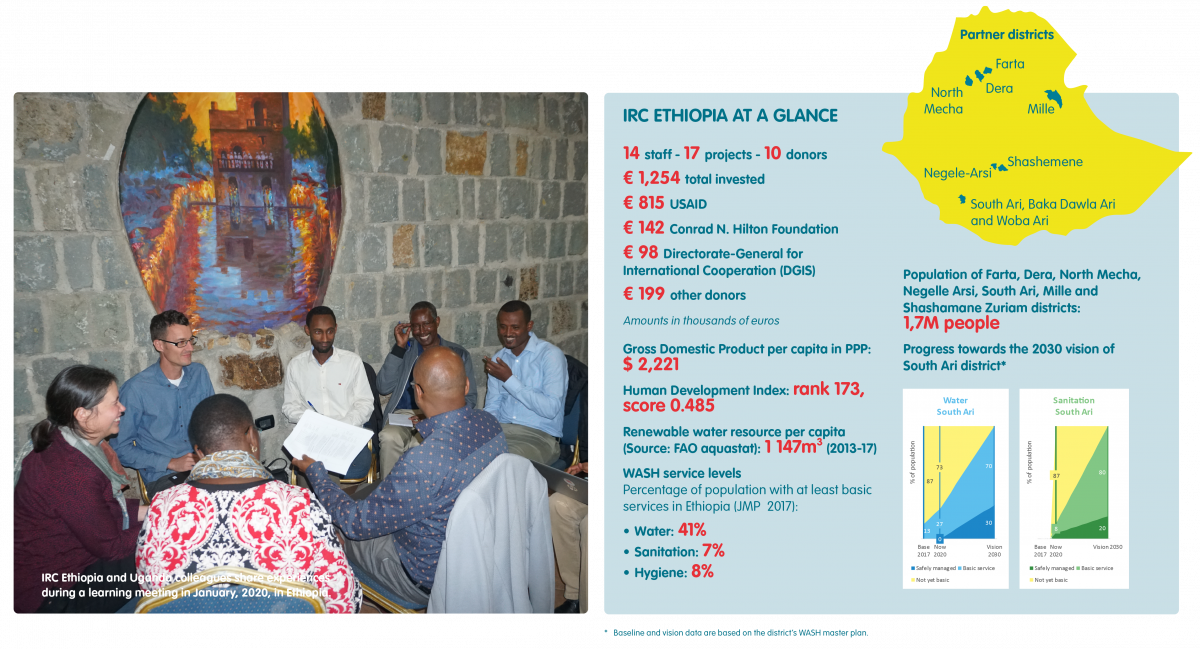
What impact did we have in our focus countries in 2020? Sharing highlights from IRC's Annual Report.
Published on: 26/07/2021
"Previously, no partner has shown us a WASH roadmap for where the woreda is currently and where we are heading to or need to go. This plan is a foundation for the future as we have been focusing on hardware."
- Kedir, Negelle Arsi Woreda Health Office Head commenting on the master plan.
In 2020, we worked closely with seven districts (woredas) in Ethiopia with an estimated total population of 1,735,000 people.
All the districts now have a learning alliance platform to help build and share knowledge among WASH actors. We also supported these districts with their master plans to help improve WASH services and sustainability.
From 2021 onwards, we will double our commitment to supporting long-term change at local level. We will focus on WASH systems strengthening in Negelle Arsi and South Ari as our partner districts, while continuing our support of specific WASH systems building blocks in our other partner districts and at the national level.
In order to cope with COVID-19 challenges in 2020, we made use of virtual alternatives to face-to-face meetings. With the USAID
Transform WASH project we created chat groups using the Telegram messaging app. This meant that regional and national sanitation marketing discussions could continue. We provided monthly internet data packages for each of the 200 members, and the groups are still actively engaged in discussing all things sanitation marketing.
We also participated in and supported different national WASH platforms. We joined COVID-19 response task force meetings held online, hosted by the Ministry of Water, Irrigation and Energy, and contributed to its WASH strategy and preparedness and response plan. As a contribution to emergency efforts, we directly supplied soap to quarantine centres in Addis Ababa and other regional towns. And we also supported an initiative on strengthening water supply system management; and joined a national WASH financing working group. The meetings were held in-person and online.